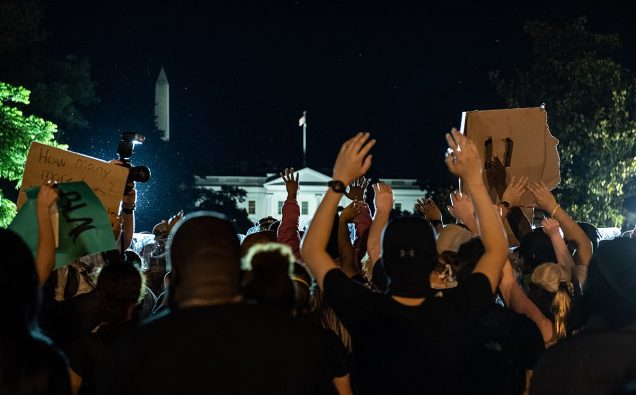
The death of George Floyd in Minneapolis police custody has resulted in massive protests against racial injustice in several major cities from California, Minnesota to Washington, DC.
As tens of thousands of Americans have taken to the streets in recent days, the transmission of the Coronavirus is still rampant across the United States.
During the protests, since it is not possible for people to maintain social distancing, there is a risk for those people to spread the virus, health experts say.
That is despite the fact that protesters wear face masks.
But that risk to health has not deterred protesters as they argue that police brutality against the black community is also a crisis.
Besides African Americans, who have been devastated by the activists and common people from several ethnic and racial communities are participating in the protests.
Some protesters have argued that police discrimination is equally as dangerous to health as COVID_19 for many black Americans.
Dr Atif Adam, a faculty member at John Hopkins and Harvard Medical School, says racism remains a big issue among black people, and that is why they have decided to face the challenge of even the coronavirus infection.
In nationwide demonstrators are frequently pepper-sprayed or enveloped in clouds of tear gas. These crowd-control weapons are rarely lethal, but in the middle of the coronavirus pandemic, there are growing calls for police to stop using these chemical irritants because they can damage the body in ways that can spread the coronavirus and increase the severity of COVID_19.
Subsequently, an Associated Press review found that demonstrations have taken place in every one of the 25 U.S. communities with the highest concentrations of new cases.
These protests have come just as across the states loosen restrictions on businesses and public life that have helped slow the spread of the virus. The reopening at some places with still higher infections has deepened concerns that the two factors taken tighter could create a national resurgence in cases.
For many, it is a really tough situation as people feel strongly about race issues and the threat of coronavirus also hangs over gatherings. On the one hand, people cannot be made to give up their right to protest but at the same time if they choose to protest thy must do so with utmost care.
What should be done?
Although there is a danger of spreading the virus at these gatherings yet some experts say they cannot discourage people from attending the protest and exercising their rights to free speech. However, they advise people to exercise precautionary measures.
Dr Atif Adam says, “I think people have been very careful in cities in making sure that they are wearing face masks and being aware of social distancing.
“Obviously, it hasn’t been peaceful everywhere. There are likely going to increase in cases in certain cities. But our health systems are not as inundated as a few months ago, and should be able to handle the higher case numbers if things come to that.”



















Thank you, very interesting note. Post gave it some thought.